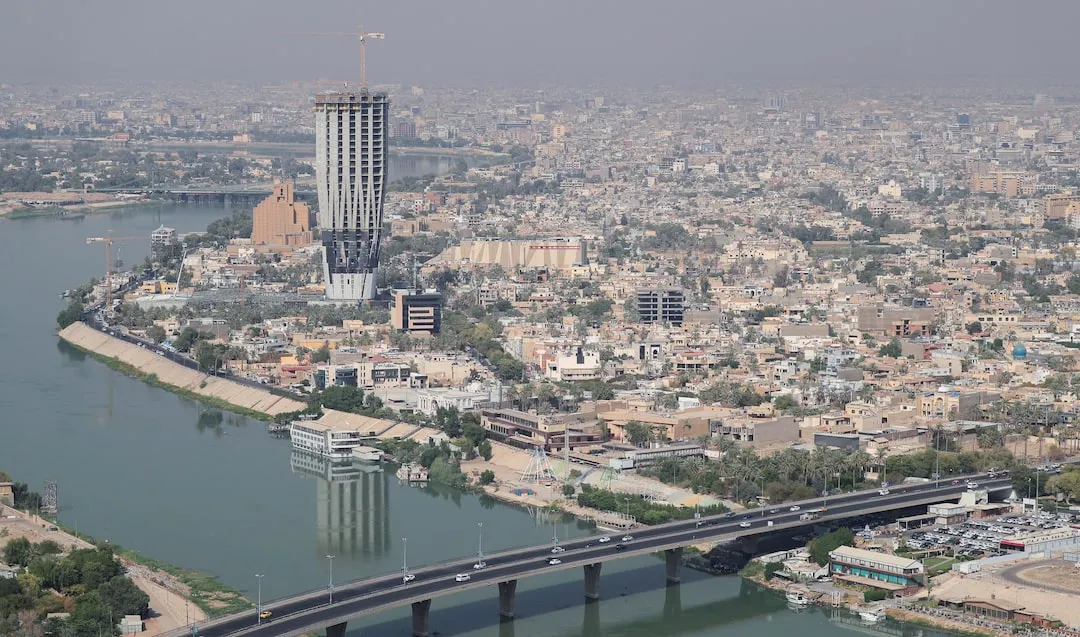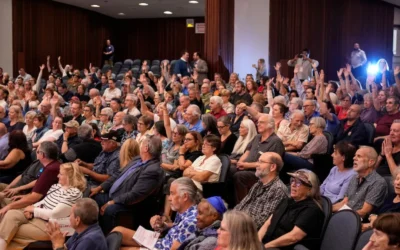The recent escalation of tensions in the Middle East has led the United States to consider a partial evacuation of its embassy in Baghdad, according to multiple sources. As regional security risks heighten, US officials are preparing to order the departure of all nonessential staff from the embassy, significantly altering the American diplomatic presence in Iraq.
This strategic decision comes on the heels of a broader policy shift, as US militaries and government officials reassess their position in the Middle East. Reports suggest that US Strategic Command is closely monitoring events in the region, prompting discussions about the safety of American diplomats and military personnel.
The Context of Rising Tensions
Over the past few months, the geopolitical climate in the Middle East has grown increasingly volatile. Hostility between the United States and Iran remains a critical point of concern, with various factions in the region threatening to act against US interests. Moreover, the legacy of the US’s involvement in Iraq continues to drive complex political dynamics, rendering American assets, including embassies and military installations, prime targets.
Sources indicate that tensions flared when Iranian-backed militias reportedly increased their activities in the area, raising alarms about the potential for attacks on US personnel. This situation has prompted the US to evaluate its diplomatic and military strategies in Iraq and across the region.
Implications of the Evacuation
The partial evacuation of the US embassy in Baghdad could have significant implications for US political engagement in Iraq. Historically, the US embassy has served not only as a diplomatic hub but also as a center for American influence in the region. Reducing the number of American officials in the country could impact ongoing initiatives related to security cooperation, economic development, and counterterrorism programs.
As part of the logistical preparations for this evacuation, the State Department has issued an alert to nonessential personnel, advising them to begin arrangements for departing Iraq. The US government emphasizes the safety and welfare of its citizens, prioritizing these principles as tensions mount.
Military Dependents and Voluntary Departures
In a related move, US military personnel have been authorized to initiate voluntary departures of dependents based across the Middle East. This policy decision reflects escalating concerns for the safety of families of service members stationed in a region steeped in uncertainty. Defense officials, including Fox News host Pete Hegseth, have endorsed these precautionary measures amidst increasing probability of hostile actions against US forces.
Military families are under heightened scrutiny, and the option to leave voluntarily is seen as a necessary intervention to mitigate growing fears about potential assaults. The decision to evacuate military dependents signifies a proactive approach to securing American lives in a highly dynamic and unpredictable environment.
Political Reactions
The political ramifications of a partial embassy evacuation have elicited varied reactions from both lawmakers and analysts. Some officials view the response as essential given the geopolitical landscape. Representative Michael McCaul, the House Foreign Affairs Committee chairman, voiced concerns about the impact of further Iranian aggression, citing the necessity of safeguarding American lives and interests in the region.
Conversely, critics argue that a hasty evacuation may send mixed signals to adversaries and reinforce perceptions of American vulnerability in the face of challenges. The situation remains fluid, and opinions diverge on how best to preserve American interests without compromising diplomatic engagement.
Future Outlook
While evacuation efforts are poised to reshape US diplomatic engagement, American officials assert that they will continue to uphold a strategic presence in Iraq. The decision to allow the departure of nonessential staff does not equate to a complete withdrawal but rather reflects a cautious approach aimed at minimizing risks in the face of uncertain threats.
Throughout history, the US has navigated complex geopolitical landscapes, and officials are determined to ensure that the actions taken now align with long-term strategies in the region. As the situation develops, the prospect of conflict remains ever-present. The challenge lies in balancing immediate safety requirements with the overarching goal of sustaining partnerships in Iraq and countering the influence of adversaries.
Concluding Remarks
As tensions rise and the security environment becomes precarious, the partial evacuation of the US embassy in Iraq illustrates the lengths to which the US government is willing to go to protect its personnel and interests. Understanding the broader ramifications of these actions will be key in shaping future diplomatic relations, especially as the situation continues to evolve.
For now, American officials are sharpening their focus on responsible actions that prioritize security and stability while contemplating strategies for sustained engagement in Iraq and the Middle East. The ongoing situation underscores the need for vigilant monitoring of regional dynamics, illustrating the importance of adaptability in US foreign policy.







